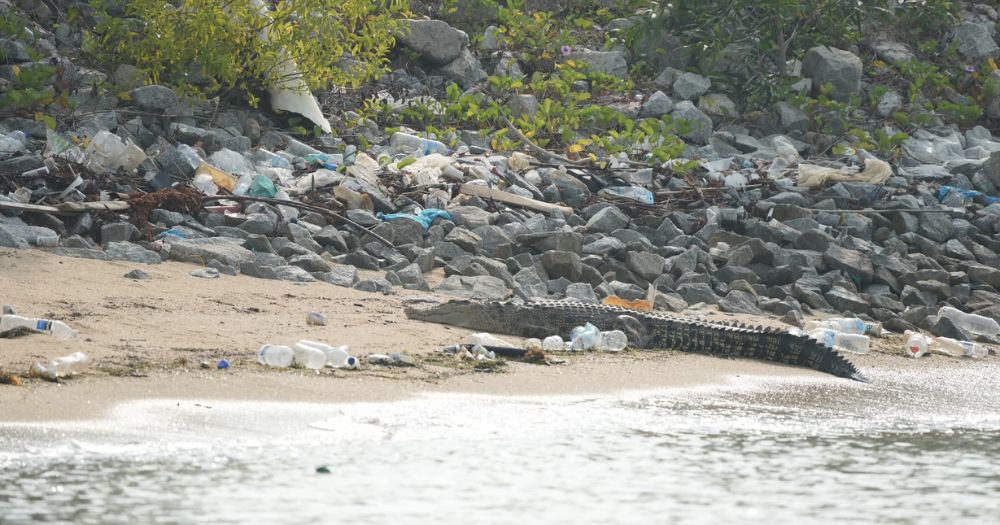A recent decision to euthanize a 3-meter saltwater crocodile found at Marina East in the heart of Singapore has ignited a passionate debate about wildlife-human coexistence in the Lion City. The controversial move has garnered widespread attention, sparking discussions on whether there could have been a more humane solution.
The estuarine crocodile, which is a species native to Singapore and listed as “Critically endangered,” was spotted basking in the sun at the southern end of the city on Oct. 10.
It is one of the largest crocodile species in the world and can grow to more than five metres in length. Because they are cold-blooded, they rely on external sources of heat like the sun to warm up.
While their range has been mostly limited to Sungei Buloh, they have been spotted in other parts of Singapore like East Coast Park, off Pasir Ris beach, and West Coast Park.
Animal welfare groups, including the Animal Concerns Research and Education Society (Acres) and the Society for the Prevention of Cruelty to Animals (SPCA), have expressed their concerns, labeling the decision to euthanize the croc following its capture as “short-sighted.”
They advocate for exploring alternative solutions to address such situations. The Herpetological Society of Singapore, recognizing the complexity of the issue, emphasizes the need for a broader conversation on managing wildlife encounters in the future.
Kalai Vanan Balakrishnan, co-chief executive officer of Acres, expressed his sadness over the culling and suggested that alternative solutions should have been considered. Aarthi Sankar, executive director of SPCA, echoed this sentiment, emphasizing that culling wildlife is not only cruel but may also be a short-sighted solution.
However, not everyone is opposed to the decision. Kannan Raja, president of the Herpetological Society of Singapore, acknowledged the sadness of euthanizing a critically endangered animal in Singapore but recognized the authorities’ efforts to balance nature and human safety.
The National Parks Board (NParks) defended their choice, citing public safety as the primary concern. Yet, the lingering question remains: Could there have been a more humane resolution to this situation?
The dilemma between relocation and euthanasia arises as a complex issue. In 2021, a smaller crocodile was successfully relocated to Sungei Buloh Wetland Reserve, demonstrating that relocation is a feasible option for smaller specimens. However, the latest crocodile’s substantial size posed challenges, making relocation unsuitable. Animal experts argue for exploring tracking methods and increasing public awareness to allow these creatures to coexist peacefully within the city.
Experts also highlight the need to understand crocodile behavior accurately. Saltwater crocodiles, despite being powerful and territorial, rarely pose significant threats to humans. Kate Pocklington, a senior conservator at the Lee Kong Chian Natural History Museum, emphasized the scarcity of recorded attacks, urging society to embrace facts over fear and advocating for a shift in how these creatures are portrayed.
NParks explained that the crocodile in 2021 was a “smaller specimen” and would have posed “a lesser risk to public safety.” The latest crocodile was “relatively larger,” measuring almost 3 meters, and the option for relocation to Sungei Buloh Wetland Reserve was no longer feasible. NParks also noted the risk of the crocodile returning to the location where it was captured.
The contrasting treatment of otters, often adored for their adorable antics, and crocodiles, stereotypically feared as predators, highlights the role of public perception. Anthropomorphism and media portrayals can skew our understanding of wildlife. Experts suggest that Singapore should move forward by fostering empathy and informed awareness to bridge the gap between human society and its wild counterparts.





Reader Interactions